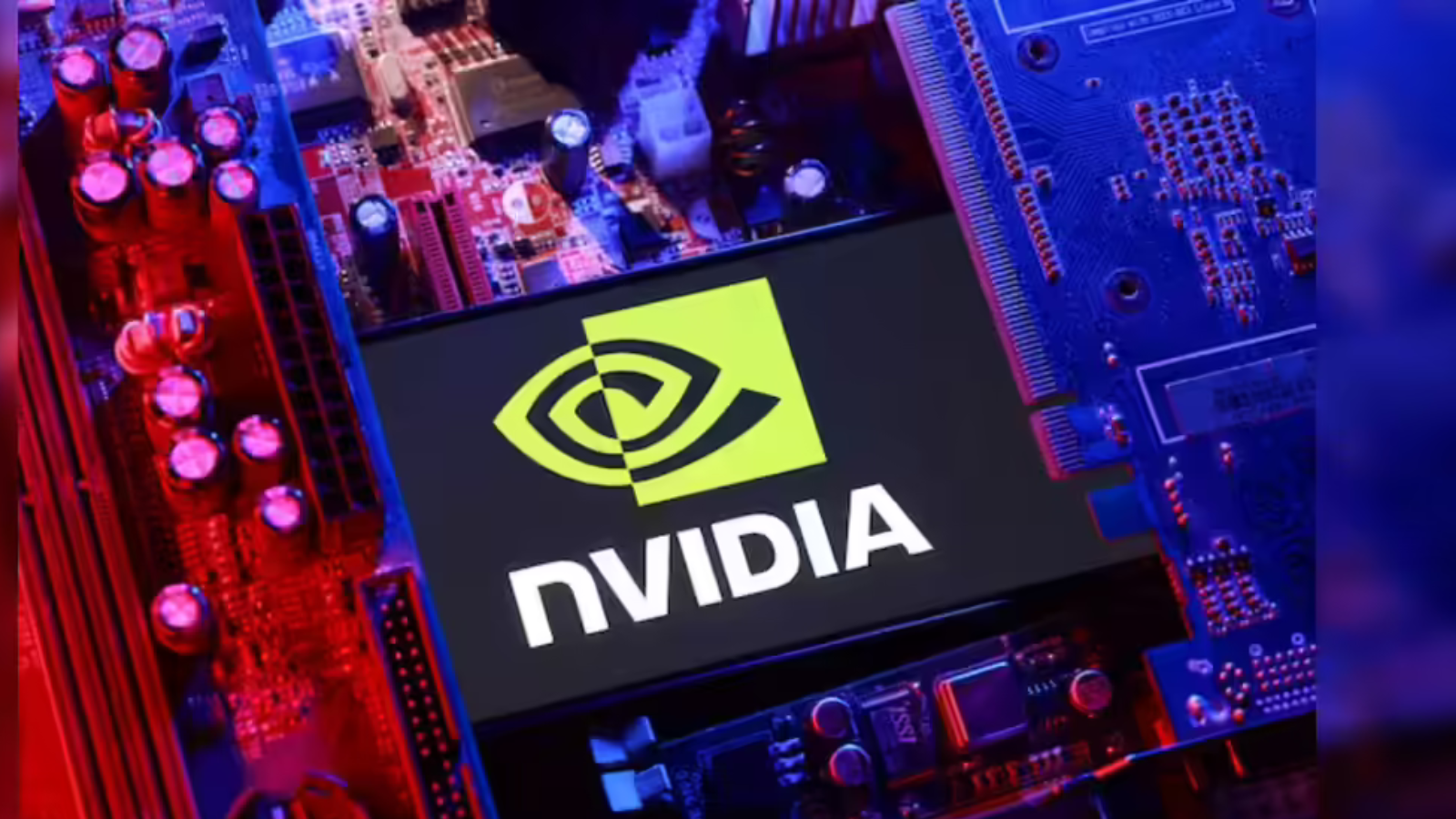AI Boom Or Bubble? Nvidia’s Results Shake Global Markets
Major Asian markets, including Japan’s Nikkei and Korea’s Kospi , surged up to 3% on Thursday, driven by strong investor sentiment after chipmaker Nvidia reported record earnings. The company’s performance eased concerns about an AI bubble and stretched stock valuations, pushing tech-linked stocks higher.
Nvidia’s Stellar Performance
Nvidia reported a 62% revenue increase to a record $57 billion for the quarter ending October, driven by booming demand for AI chips. The company also raised its forecast for the current quarter to $65 billion, signalling robust growth and reinforcing confidence in the AI sector.
AI Stocks Fuel Global Rally
The strong performance of AI-focused companies has been a major factor behind Wall Street’s 2025 rally. The Nasdaq has surged 17% year-to-date, while the S&P 500 gained 13%. However, recent corrections in US indices have sparked questions about valuation risks in the AI space.
AI: Bubble or Overblown Fear?
Investor chatter has raised concerns that certain AI stocks may be overvalued, reminiscent of the dot-com bubble in 2000. Companies linked to AI are attracting high valuations, prompting debate about the sustainability of these gains.
Experts suggest that fears of an AI bubble may be overstated, with market corrections influenced more by macroeconomic factors, including US tariffs, high interest rates, and potential economic slowdown.
"Markets are going through a bit of a reset. Interest rates remain high, earnings are mixed, and while AI has fuelled a lot of optimism, investors are starting to reassess how much of that excitement is justified. Rather than calling it a bubble, it feels more like the market is finding its balance and figuring out where real long-term value lies," said Viram Shah, Founder & CEO, Vested Finance.
Similarly, Shruti Jain, Chief Strategy Officer at Arihant Capital Markets, noted:
“The recent decline on Wall Street isn’t solely due to AI, but also tariff risks, monetary policy shifts, and delayed rate cuts. AI drove earnings growth in FY23–24, but FY25 corrections are policy and recession-driven.”
Valuation Reset vs Bubble
According to Ross Maxwell, Global Strategy Lead at VT Markets, concerns persist that AI’s transformative potential may exceed actual revenue gains. Some argue that high valuations are justified if AI adoption accelerates and corporate earnings catch up, making the current dip more of a valuation reset than a bubble burst.
“Wall Street appears to be in a healthy reset as investors reassess AI expectations. The long-term potential remains intact, but caution is warranted in pockets of overvaluation,” added Pranay Aggarwal, CEO, Stoxkart.
Takeaway for Investors
While AI enthusiasm continues to drive markets, experts advise investors to approach with measured optimism and monitor both company fundamentals and macro conditions before making decisions. Nvidia’s forecast indicates strong ongoing demand, supporting the AI sector and encouraging global market growth.
Disclaimer: This story is for educational purposes. Views expressed are those of analysts and broking firms, not Newspoint. Investors should consult certified experts before making investment decisions as market conditions can change rapidly.

Nvidia’s Stellar Performance
Nvidia reported a 62% revenue increase to a record $57 billion for the quarter ending October, driven by booming demand for AI chips. The company also raised its forecast for the current quarter to $65 billion, signalling robust growth and reinforcing confidence in the AI sector.
AI Stocks Fuel Global Rally
The strong performance of AI-focused companies has been a major factor behind Wall Street’s 2025 rally. The Nasdaq has surged 17% year-to-date, while the S&P 500 gained 13%. However, recent corrections in US indices have sparked questions about valuation risks in the AI space.
AI: Bubble or Overblown Fear?
Investor chatter has raised concerns that certain AI stocks may be overvalued, reminiscent of the dot-com bubble in 2000. Companies linked to AI are attracting high valuations, prompting debate about the sustainability of these gains.
Experts suggest that fears of an AI bubble may be overstated, with market corrections influenced more by macroeconomic factors, including US tariffs, high interest rates, and potential economic slowdown.
You may also like
 India's metals, mining stocks hold bright future despite premium to peers: Report
India's metals, mining stocks hold bright future despite premium to peers: Report 3 killed, 4 injured after car collides with truck in MP's Guna
3 killed, 4 injured after car collides with truck in MP's Guna- My position grown stronger, discussion on leadership change unnecessary: CM Siddaramaiah
- Everyone blaming Gambhir, it feels like agenda sometimes: Kotak
- UAE launches economic programme to attract 1,000 global trade companies and boost emirati exports
"Markets are going through a bit of a reset. Interest rates remain high, earnings are mixed, and while AI has fuelled a lot of optimism, investors are starting to reassess how much of that excitement is justified. Rather than calling it a bubble, it feels more like the market is finding its balance and figuring out where real long-term value lies," said Viram Shah, Founder & CEO, Vested Finance.
Similarly, Shruti Jain, Chief Strategy Officer at Arihant Capital Markets, noted:
“The recent decline on Wall Street isn’t solely due to AI, but also tariff risks, monetary policy shifts, and delayed rate cuts. AI drove earnings growth in FY23–24, but FY25 corrections are policy and recession-driven.”
Valuation Reset vs Bubble
According to Ross Maxwell, Global Strategy Lead at VT Markets, concerns persist that AI’s transformative potential may exceed actual revenue gains. Some argue that high valuations are justified if AI adoption accelerates and corporate earnings catch up, making the current dip more of a valuation reset than a bubble burst.
“Wall Street appears to be in a healthy reset as investors reassess AI expectations. The long-term potential remains intact, but caution is warranted in pockets of overvaluation,” added Pranay Aggarwal, CEO, Stoxkart.
Takeaway for Investors
While AI enthusiasm continues to drive markets, experts advise investors to approach with measured optimism and monitor both company fundamentals and macro conditions before making decisions. Nvidia’s forecast indicates strong ongoing demand, supporting the AI sector and encouraging global market growth.
Disclaimer: This story is for educational purposes. Views expressed are those of analysts and broking firms, not Newspoint. Investors should consult certified experts before making investment decisions as market conditions can change rapidly.









